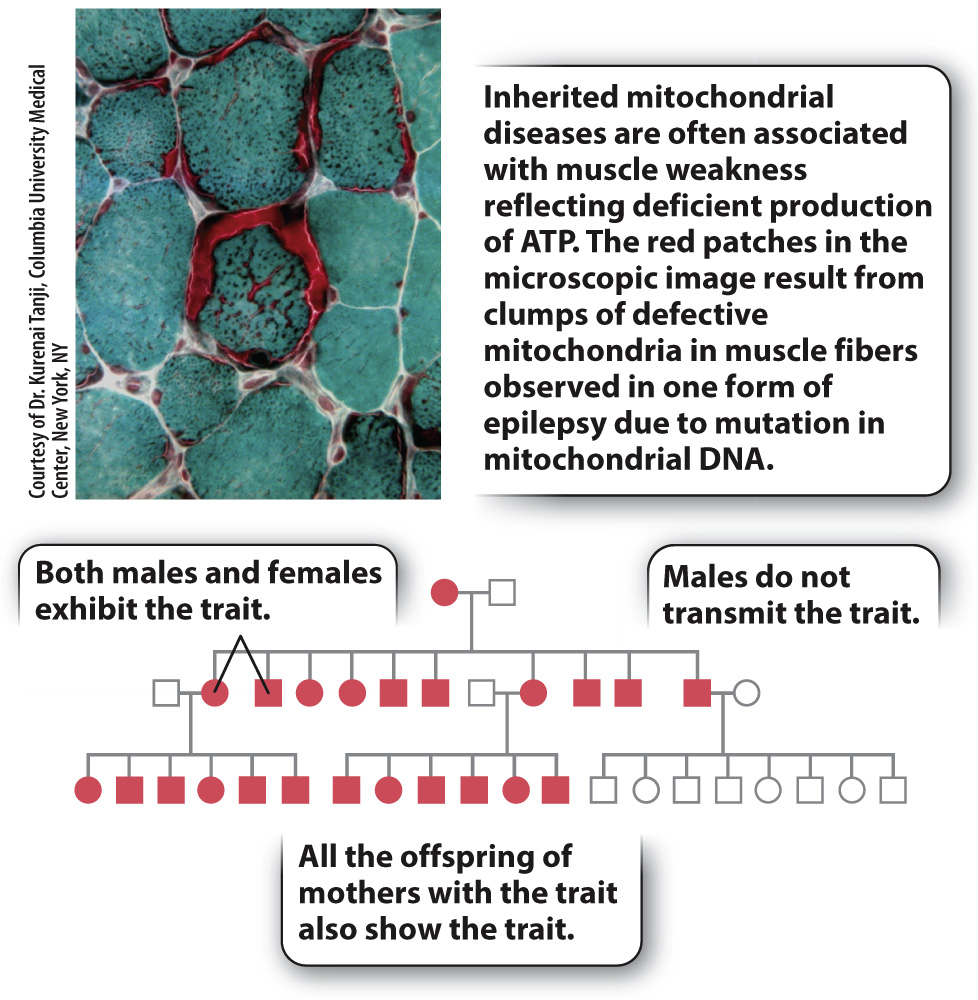Maternal inheritance is characteristic of mitochondrial diseases.
In humans and other mammals, mitochondria normally show strictly maternal inheritance—
- Both males and females can show the trait.
- All offspring from an affected female show the trait.
- Males do not transmit the trait to their offspring.

The pedigree in Fig. 17.16 follows a mitochondrial disease known as MERRF syndrome (the acronym stands for “myoclonic epilepsy with ragged red fibers”). As its name suggests, the syndrome is characterized by epilepsy, a neurological disease characterized by seizures, as well as by the accumulation of abnormal mitochondria in muscle fibers. This extremely rare disease is associated with a single point mutation in a mitochondrial gene involved in protein synthesis that affects oxidative phosphorylation (Chapter 7).
More than 40 different diseases show these pedigree characteristics. They all result from mutations in the mitochondrial DNA, but the tissues and organs affected as well as the severity differ from one to the next. All of the mutations affect energy production in one way or another. In some cases, disease results directly from lack of adequate amounts of ATP, in other cases from intermediates in energy production that are toxic to the cell or that damage the mitochondrial DNA.